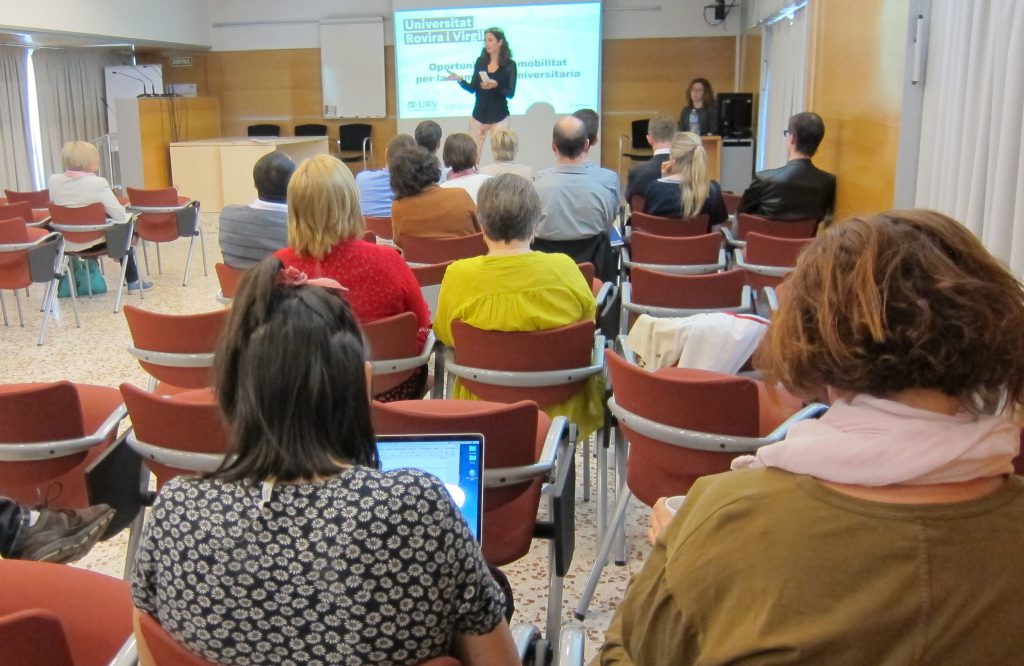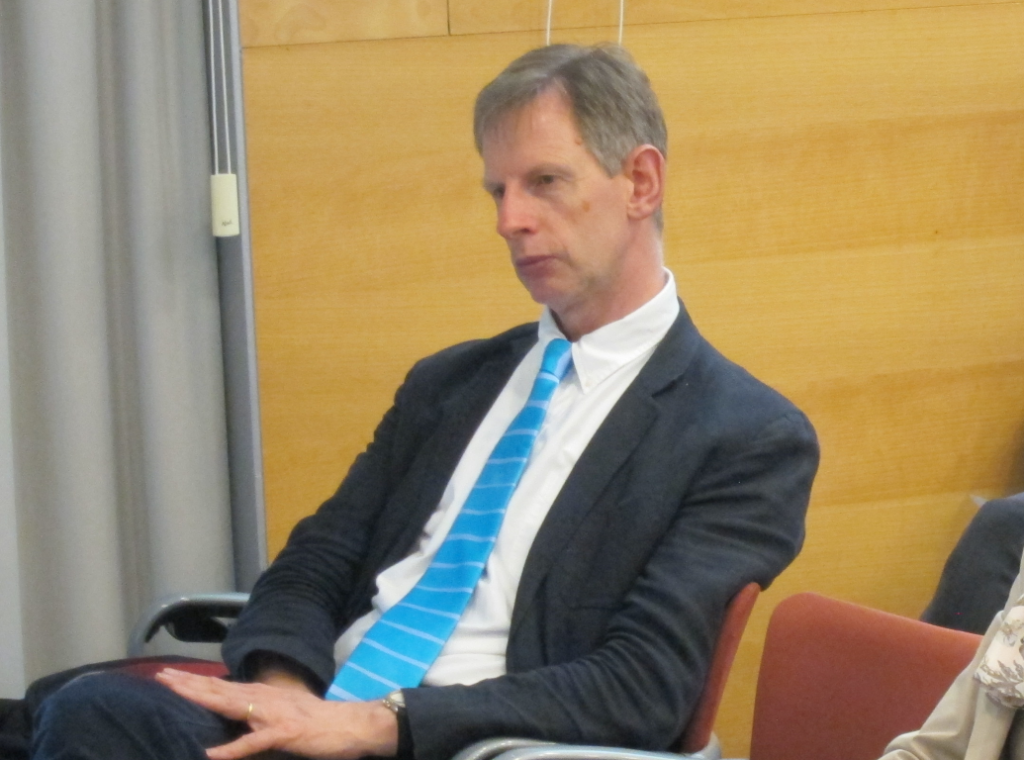18/05/2018
A seminar on teaching professionalisation strategies in various countries
Experts debate initial training profiles, classroom methodologies, internationalisation and the role of universities in providing lifelong training to teachers

Experts debate initial training profiles, classroom methodologies, internationalisation and the role of universities in providing lifelong training to teachers
On 17 May, the Faculty of Education Sciences and Psychology (FCEP) held a seminar on international experiences in teacher training with the aim of fostering mutual understanding of the strategies used in different countries, analysing the contribution made by academic networks, learning about approaches to revaluing the role of teachers, and analysing the way in which the impact of innovation is evaluated. The seminar was attended by various internationalisation experts such as David Powell, director of the Huddersfield University Distributed Centre for Excellence in Teacher Training, a teacher training centre in England.
Powell talked about the challenges facing teachers, the things to take into account if you want to be a good teacher, and the different phases in the development of the profession. Luis Marqués, dean of the FCEP, summed the seminar up by saying that “each country has the same problems regarding classroom methodologies, the role of teachers, the debate about the initial training profile, and the importance given to pedagogy and content”. During David Powell’s talk, certain differences between the English and Spanish education systems were discussed, such as how in England the classroom is viewed as a more open space, or the role of universities in lifelong learning, a role that is currently undergoing significant change in Spain.

The FCEP organised the seminar “International experiences in teacher training: professionalization and networking” as part of the Programme for Improvement and Innovation in Teacher Training, which coordinates the efforts of the Catalan universities to improve the initial training of teachers. Among other activities, the programme offers international mobility grants for university professors who teach on the bachelor’s and master’s degrees in teacher training. The head of the URV’s International Center, Marina Casals, spoke of the importance of internationalisation and the differences between educational systems: “the primary difference is the way in which teachers are regarded in each culture”.
The seminar also featured a round table on internationalisation, during which members of the education community with international experience discussed the problems and opportunities resulting from mobility activities and international cooperation between educational institutions.
